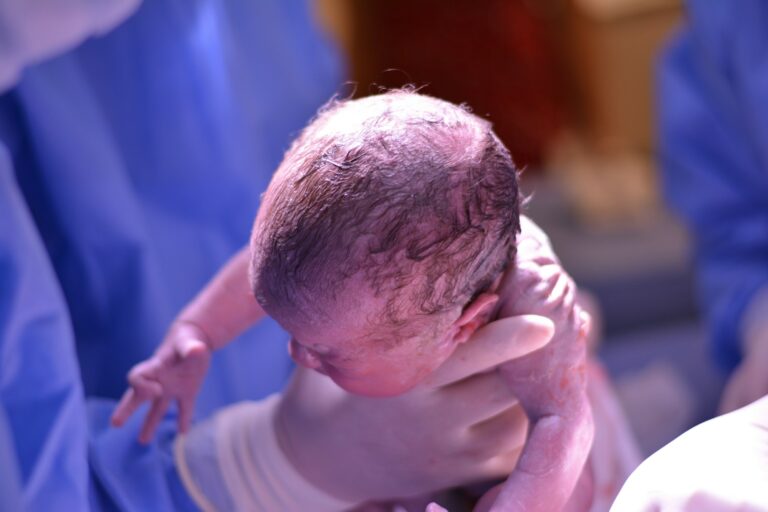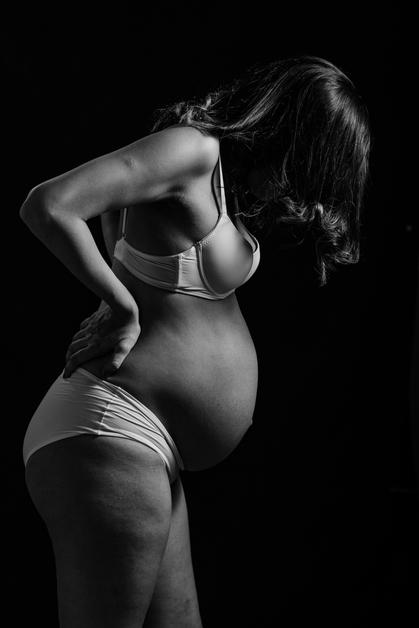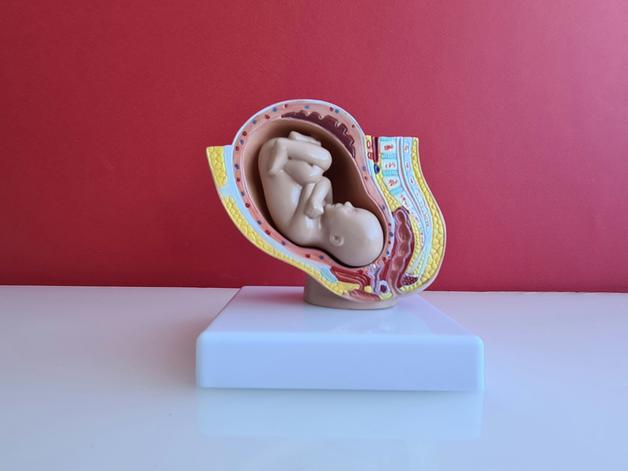Feeling like a sudden wave of intense heat just rolled over your skin, and wondering what in the world just happened? You are not imagining things if these moments have started showing up more often since the positive test. Hot flashes during pregnancy—those unpredictable bursts of warmth, drenched foreheads, and nights punctuated by sweats—can feel both startling and disorienting. Many parents grapple with questions: Why is this happening? Should I worry? How can I sleep through the night when I’m waking up soaked and restless? The answers are not always simple, but unpacking the physiology, spotlighting practical solutions, and distinguishing common myths go a long way towards reclaiming comfort (and dignity) during this phase.
Understanding Hot Flashes During Pregnancy
What exactly are hot flashes during pregnancy? Picture an abrupt, almost volcanic heat blooming from your chest to your hairline. The sensation may come with intense flushing, beads of sweat, and, for some, a peculiar sense that heat is radiating from within. This isn’t a fever—your actual body temperature stays below 100.4°F (38°C)—but it rattles the body’s thermostat, often leaving you searching for cool relief.
The science behind these episodes is layered. During pregnancy, hormonal roller coasters—fluctuations in estrogen, progesterone, and spikes in prolactin—profoundly influence the hypothalamus, the area of the brain responsible for temperature regulation. When the hypothalamus misinterprets signals, blood vessels in the skin expand (known as vasodilation), causing a rapid release of heat and triggering those familiar sweats and flushes. The experience is often compared to the hot flashes of menopause, but here, it’s the surge and not the withdrawal of hormones causing the havoc.
Why such a dramatic response? Pregnant bodies work overtime: heart rate and metabolic rate climb, blood volume surges to nourish both parent and baby, and even minor triggers (a warm drink, a brisk walk, an anxious thought) can tip the balance.
Prevalence and Timing: When, How Often, and Why Me?
You may wonder, is it just me, or are hot flashes a rite of passage for expectant parents? Data suggests that around one in three pregnant individuals experience hot flashes during pregnancy at some point. Typically, these appear as early as the first trimester and intensify in the second and third trimesters, sometimes lingering into the postpartum weeks while hormonal levels recalibrate.
Certain factors—being younger than thirty, a body mass index (BMI) above 25, a prior or current mood disorder, or gestational anomalies like thyroid fluctuations—are linked to increased likelihood or intensity. Yet, every pregnancy is distinct, with some never encountering more than mild, fleeting warmth, while others count nightly shirt changes as the new normal.
Mechanisms and Triggers: Why Do Hot Flashes Happen?
Diving deeper into physiology reveals a perfect storm of factors. At the center lies hormonal fluctuation: Estrogen and progesterone soar, shifting the autonomic nervous system so that even slight environmental warmth or emotional stress can provoke a cascade—a flush, sweating, perhaps lightheadedness or palpitations. All of this, while the body remains committed to maintaining an ideal environment for the developing child.
Other contributing elements include:
- Increased blood flow: With the heart pumping up to 50% more blood, vessels near the surface dilate, radiating heat efficiently (sometimes too efficiently).
- Weight gain: Adds insulation, reducing the body’s ability to cool efficiently.
- Sleep disruption: Both a consequence and amplifier, as restless nights can heighten the frequency and severity of episodes.
- Diet: Triggers like caffeine, alcohol, and spicy foods ramp up the odds of a hot flash striking, as does dehydration.
- Clothing and activity: Synthetic fabrics and tight attire trap heat, while brisk exercise can also spark an episode in sensitive individuals.
- Comorbidities: Gestational diabetes, hyperthyroidism, or generalized anxiety can act as exacerbating factors, intensifying both frequency and discomfort.
Recognizing Symptoms and Associated Signals
Do you suddenly feel flushed, a film of sweat forming even with no clear reason? Symptoms typically surface as:
- Instantaneous, profound warmth often rising from the chest and up the neck
- Visible redness or flushing of skin (especially on the face and chest)
- Rapid-onset, sometimes heavy, sweating—particularly at night (the notorious night sweats)
- Palpitations or a brief racing heartbeat
- Occasional dizziness or light-headedness
- Mild chills following the episode as the body tries to recalibrate
It is important to distinguish these episodes from symptoms warranting further investigation. Persistent fever, unexplained weight loss, continuous palpitations, or fainting are not hallmarks of hot flashes during pregnancy and call for timely medical attention.
How Hot Flashes Shape Daily Life
Sleep, already a challenge during pregnancy, becomes even more elusive when startled awake by a soaked pillow. Night after night. Days don’t always offer respite—public transport, a stressful meeting, a crowded room, and suddenly, sweat rivers down your temples. Fatigue builds, emotional resilience may falter, and simple tasks can feel monumental. Some parents share stories of changing outfits multiple times daily, carrying fans and water bottles everywhere, or timing outings to avoid peak heat.
Yet, despite their disruptive power, hot flashes rarely cause lasting harm. They are, above all, a demand for adaptation. An evolving, sometimes awkward, but temporary companion on the journey to parenthood.
Separating Hot Flashes from Other Medical Issues
Fever and hot flashes may share superficial similarities, but physiologically, they’re miles apart. The body’s temperature during a hot flash stays in a safe range—think subjective rather than objective heat. Fevers, especially those exceeding 100.4°F (38°C) and accompanying chills, muscle aches, or general malaise, signal infection and require consultation.
Morning sickness (persistent nausea and vomiting), environmental overheating (prolonged high body temperature from external conditions), and gestational thyroid disorders all present with distinctive patterns. Any episode with extreme or enduring symptoms—loss of consciousness, severe chest discomfort, or labored breathing—should prompt immediate contact with a healthcare provider.
Myths and Misconceptions: Setting the Record Straight
Plenty of folklore swirls around hot flashes during pregnancy. No, they do not reveal the sex of the baby, nor do they confirm twins. The presence, severity, or timing of hot flashes is not a form of maternal prognosis or a window into baby’s health—these are myths unsupported by scientific evidence. Likewise, while cultural remedies abound, not all are safe or recommended during pregnancy.
Strategies for Relief: Actionable Solutions for Everyday Life
Restoring comfort during hot flashes during pregnancy means more than wishful thinking. Consider a multi-pronged approach—adaptation, prevention, and proactive support:
- Opt for breathable layers: Cotton and natural fibers outperform synthetics for temperature regulation. Dressing in layers lets you respond swiftly to oncoming heat.
- Environment control: Keep living and sleeping spaces cool—aim for 64–66°F (17–18°C) in bedrooms, employ fans, and prioritize cross-ventilation. Even modest environmental tweaks can diminish episode severity.
- Hydration and nutrition: Water—simple, but indispensable. Strive for 1.5 to 2 liters daily, adding juicy, water-rich snacks like melon or cucumber. Snack smart with small, frequent meals built around fresh vegetables and fruits, while reducing triggers (caffeine, alcohol, spicy foods).
- Cooling tools on the go: A mini-spray bottle, portable fan, or soft cooling towel fits easily into a handbag and provides swift relief in public settings. Some parents swear by pressing a cool, damp washcloth to the neck or wrists at the first sign of a flush.
- Gentle movement: Light exercise such as prenatal yoga, walking, or swimming soothes stress and supports circulation without drastically raising body heat. High-intensity workouts may be better replaced with calming, restorative activities.
- Rest and self-regulation: Relaxation techniques, deep breathing, and mindfulness-based routines—especially before bed—can blunt the reaction of the nervous system, making hot flashes milder and less frequent.
Rather than aiming for perfection, aim for pragmatic tweaks that fit your own lifestyle and comfort.
Preventing and Minimizing Hot Flashes: Realistic Habits
No magic fix exists, but patterns do emerge:
- Steer clear of usual triggers (spicy foods, caffeine, heat, tight clothes).
- Schedule naps or rest for cooler times of day, and don’t hesitate to delegate demanding tasks when possible.
- Prioritize ventilated, shaded environments—especially during summer or heat waves.
- End showers at a cool or lukewarm temperature, which recalibrates the body without the shock of ice-cold water.
- Use room-darkening shades or curtains to block out daytime heat and refresh rooms in the early morning or late evening.
Thoughtful, steady habits can, over time, take the edge off both the frequency and intensity of hot flashes during pregnancy.
Natural Remedies and Safety Considerations: What’s Safe During Pregnancy?
With a surge of interest in “natural” or herbal options, caution becomes vital. Plants rich in phytoestrogens (like soy, red clover, or hops) interact with hormone pathways, and their safety profiles in pregnancy remain under-researched. Most over-the-counter supplements targeting menopausal hot flashes are inappropriate, given unpredictable or even unsafe effects on both parent and fetus.
Essential oils can cross the placenta and accumulate—most are best left aside, except perhaps for light teas prepared with chamomile or mint discussed with your healthcare team. Homeopathic or acupuncture approaches occasionally provide relief, but always seek practitioners trained in pregnancy care.
Above all, never self-medicate or experiment with unverified remedies. Personalized medical guidance is irreplaceable when weighing risk and benefit.
When to Contact Your Healthcare Provider
Most hot flashes during pregnancy—while disruptive—do not signal a threat to parent or baby. Yet, certain warning signs demand immediate attention:
- Episodes accompanied by ongoing fever, fainting, chest pain, unrelieved palpitations, or rapid unexplained weight loss
- Any persistent or escalating discomfort interfering with daily life or emotional well-being
Professional input can rule out underlying issues such as gestational diabetes, thyroid dysfunction, or infection, and tailor recommendations to your individual situation.
Sharing Experiences and Cultivating Support
While some parents find humor in recounting midnight sheet changes or strategic fan placements, others feel frustration mounting with every sweat-soaked night. Conversations with other parents, healthcare teams, and partners offer validation, fresh ideas, and a sense of connection through the unpredictable ups and downs. Small, everyday measures—airing out the house before dawn, sipping cool water, reaching out for help with household chores—add up.
Acknowledging the reality of hot flashes during pregnancy paves the way for smart solutions, emotional support, and practical confidence.
Key Takeaways
- Hot flashes during pregnancy stem from hormonal surges, amplified metabolism, and cardiovascular shifts—most commonly peaking in the second and third trimesters.
- Their hallmark is sudden, short-lived heat without a true rise in core body temperature; persistent fever is not a feature.
- Simple daily strategies—cool clothing, hydration, thoughtful nutrition, and relaxation—offer genuine relief.
- Self-medicating with herbal or menopause remedies is risky during pregnancy—professional advice, always.
- Seek medical review for symptoms that persist, escalate, or combine with palpitations, fever, breathlessness, or unexplained fatigue.
- Harness the power of shared experience, professional support, and the understanding that adaptation matters just as much as information.
- For further tailored advice and access to free children’s health questionnaires, download the Heloa app.
Understanding, preparation, and community transform bewildering symptoms into another facet of the extraordinary journey of parenthood—one best faced informed, prepared, and supported.
Questions Parents Ask
Can hot flashes be an early sign of pregnancy?
Absolutely, some parents notice hot flashes as one of the body’s first signals of pregnancy, even before other classic symptoms appear. This sensation stems from swift hormonal changes, especially rising estrogen and progesterone, shortly after conception. Every individual is unique—while some may experience warmth and sweating in the initial weeks, others might not experience this at all. Rassurez-vous, feeling hot flashes early on is quite normal and does not indicate a problem.
Do hot flashes during pregnancy mean something is wrong?
Hot flashes are usually a normal response to significant hormonal and metabolic adjustments taking place in the body during pregnancy. The majority of the time, they are harmless and linked to these natural changes. However, if hot flashes are associated with other symptoms like ongoing fever, chest pains, or fainting, il importe de consulter un professionnel de santé. Most parents experience hot flashes without any underlying problem—your comfort and peace of mind are always important.
How long do hot flashes last during pregnancy?
The duration of hot flashes varies widely. Some parents experience just a few minutes of sudden warmth or sweating, while others notice these feelings linger a bit longer. Episodes are generally short, resolving as quickly as they appear. For many, hot flashes decline after childbirth as hormone levels stabilize. If episodes persist or become particularly troublesome, exchanging with your healthcare provider can offer reassurance and personalized solutions.










